You might think dogs around the world go “woof” or “bark” — but in Japanese, they say “Wan Wan!” (わんわん).
It’s the most common sound to represent a dog’s bark, especially when children or cartoons are involved.
Whether you’re at a park, in a picture book, or watching anime, “Wan Wan” is Japan’s go-to dog sound!
First, let’s listen to how it sounds!
What is “Wan Wan” (わんわん)?
“Wan Wan” is a Japanese onomatopoeia that represents the barking sound of a dog.
It mimics a cheerful, high-pitched bark — especially the kind you’d hear from a small or energetic dog.
It’s often used in picture books, children’s songs, anime, and everyday conversation.
Pronunciation
wan-wan
(Like “one-one” in English, but faster and more playful)
Categories
Animals / Sound
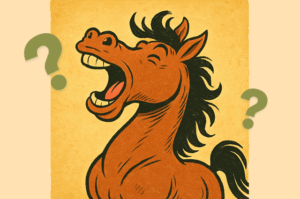
What Does “Wan Wan” Look Like?
It’s often written in round, bouncy letters in children’s books and cartoons.
Even the shape of the word feels soft and happy — just like a friendly puppy’s bark.

How Do You Say It?
It’s short, cheerful, and easy to say — Wan wan!
Try saying it aloud just like a playful little dog!
Let’s Compare!
Did you know dogs bark differently around the world?
Let’s compare how dogs sound in different languages!
English: Woof woof!
Spanish: Guau guau!
Why do dog sounds differ by language?
You might wonder — dogs bark the same way around the world, so why do different languages spell it differently?
That’s because onomatopoeia is shaped by the sounds native speakers hear — and how their language expresses sounds.
Each language uses its own rhythm, vowels, and consonants to recreate what a dog’s bark sounds like to them.
For example:
- In English, “woof woof” uses strong ‘w’ and ‘f’ sounds.
- In Spanish, “guau guau” reflects a rolling, softer bark.
- In Japanese, “wan wan” feels bright, high-pitched, and friendly — perfect for how dogs are portrayed in Japanese media!
It’s not that the dogs bark differently — it’s that we hear and describe it differently depending on our language and culture.
Isn’t that fascinating?
Examples in Daily Life
Example 1: A dog barking at the gate
A small dog ran up to the fence and started barking —
“Wan wan! Wan wan!”
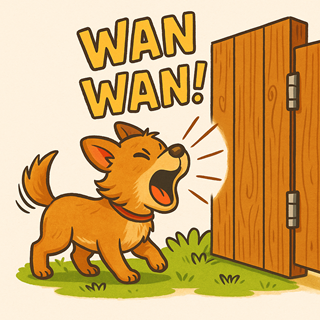
Example 2: A child imitating a dog
At the park, a little girl pointed at a dog and said,
“Look, Mama! Wan wan!”
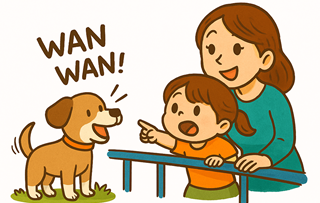
Watch & Feel the Wan Wan World!
Dogs Barking at the Park
Watch these playful pups bark away with full “wan wan” energy!
From fluffy Shiba Inus to excited little Pomeranians — it’s all wan wan!
Leave a Comment
This site is growing little by little — with your help.
If you’re curious about what kind of onomatopoeia fits a certain scene or feeling, feel free to make a request!
Kind thoughts, warm feedback, or any nice ideas are always welcome.
You can leave a comment in the section at the bottom of the page.
Looking forward to hearing from you.
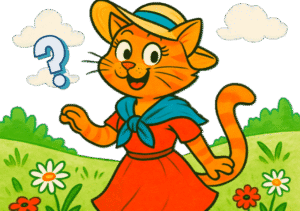



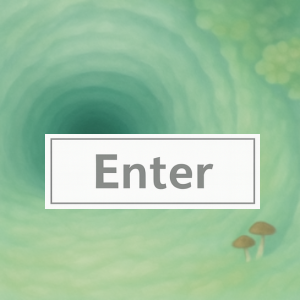



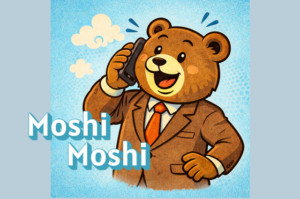
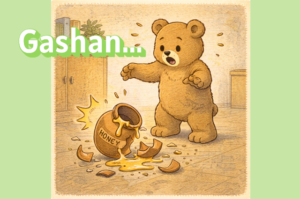
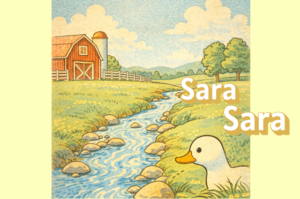
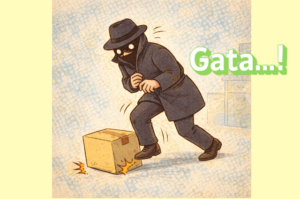
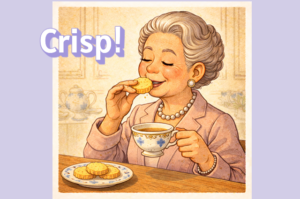
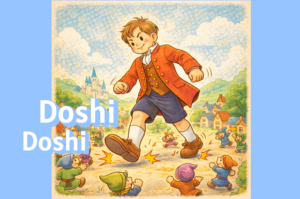
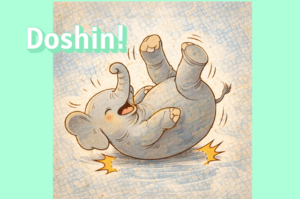
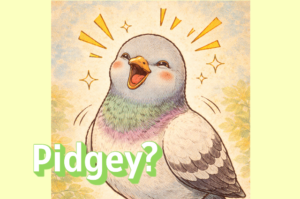
Comments